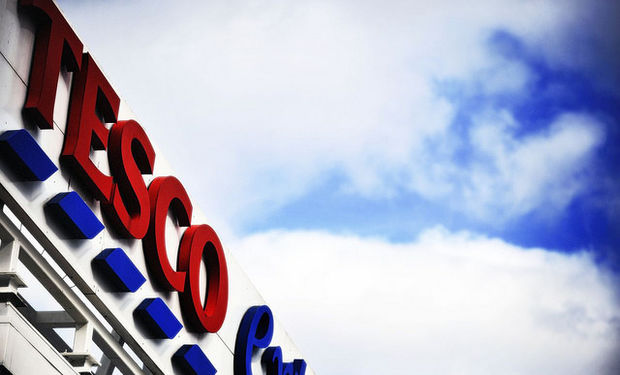
Tesco on top as UK supermarkets fight back
For the first time in at least two years, the UK's leading supermarkets experienced two consecutive months of growth in both money taken at the till and volume of goods sold.
According to retail performance data from Nielsen, during the four weeks to September 10, the value of sales was up 0.4% versus the same period a year ago while sales volumes increased 0.3%.
Neither has been positive for two consecutive months in over two years.
Beverages were the big winners over the last four weeks with sales of beers, wines and spirits up 6.8%.
The growth was partly driven by people making more frequent shopping trips, which benefited supermarkets with small store formats, in particular.
Tesco had its best year-on-year performance, with sales for the 12 weeks ending September 10 down just -0.2% against the same period last year.
"With both value and volume in growth for most weeks since the middle of July, we're seeing the green shoots of recovery for the leading supermarkets in their battle against the discounters and price deflation," Mike Watkins, Nielsen's UK head of retailer and business insight said.
"A sustained period of good weather and soaring temperatures into September also helped, as did an improved performance from Tesco, and continued good momentum at the likes of Co-op and Waitrose."
In contrast to rising sales in the alcohol and soft drinks categories, packaged groceries saw a -4.7% decline in sales, as shoppers decided to delay stocking up the larder, instead focusing on outdoor eating and foods for immediate meal preparation.
This helped sales in fresh foods rise, such as produce (+3.6%) and delicatessen (+3.4%), as well as contributing to M&S having the highest year-on-year sales increase (+5%) among the leading food retailers, outside the discounters, over the twelve-week period.
Watkins expects competition to "remain intense", particularly with Tesco and, soon, Morrisons, which looks set to return to growth.
"There's a lot of market share to play for in the £40 billion sales opportunity up to the end of the year," he said.
"This is why the supermarkets need to maintain price cuts as part of a strategy to win back market share from the discounters who are expected to respond by increasing advertising spend again in the run up to Christmas."





